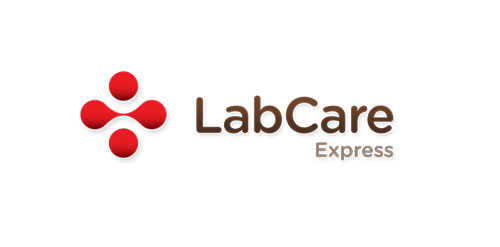Description

Dicatalyst

Attune LabKernel
Comprehensive Overview: Dicatalyst vs Attune LabKernel
Dicatalyst and Attune LabKernel are products that cater to different aspects of healthcare and laboratory management, each with a specific set of functionalities and target markets.
a) Primary Functions and Target Markets:
Dicatalyst:
- Primary Functions: Dicatalyst is a digital platform designed to streamline and enhance workflows in various medical and health-related environments. Its main functions include digital transformation services, data analytics, and customized software solutions tailored for healthcare organizations. The platform is aimed at improving productivity and operational efficiency through automation and advanced data management techniques.
- Target Markets: Dicatalyst targets a range of healthcare providers, including hospitals, clinics, and health networks that need to modernize their digital infrastructure. It appeals to organizations looking for customized technological solutions to improve patient care and streamline operations.
Attune LabKernel:
- Primary Functions: Attune LabKernel is a laboratory information management system (LIMS) specifically designed for diagnostic labs and research facilities. Its primary functions include sample tracking, test management, quality control, and reporting. It provides capabilities for managing lab workflows, automating processes, and ensuring compliance with industry standards.
- Target Markets: The product is targeted at diagnostic laboratories, research institutions, and healthcare facilities that require an efficient system to manage lab operations and data. It appeals to labs seeking to enhance accuracy, productivity, and compliance in their daily operations.
b) Market Share and User Base:
-
Dicatalyst: As a digital transformation solution, Dicatalyst's market share and user base depend significantly on its ability to offer tailored and effective solutions that resonate with healthcare institutions' demands. The market share can vary widely depending on geographical location and the specific sector of healthcare being targeted.
-
Attune LabKernel: LabKernel could have a more defined share within the LIMS market for diagnostics and research due to its specialized nature. Its user base mainly consists of labs that require functional and efficient management of laboratory tasks and processes. The LIMS market is competitive, with many providers, so LabKernel's success would depend on its feature set, ease of use, and integration capabilities.
c) Key Differentiating Factors:
Dicatalyst:
- Customization: Dicatalyst offers highly tailored solutions, which can be a significant advantage for healthcare organizations with specific needs that are not met by more standardized products.
- Integration Capabilities: It provides robust integration options with existing systems within healthcare facilities, ensuring seamless workflow across different digital platforms.
Attune LabKernel:
- Specialization in LIMS: LabKernel’s focus on laboratory information management makes it particularly suited for diagnostic laboratories.
- Workflow Automation: Provides extensive automation features specifically for lab processes, which helps reduce manual errors and increase efficiency.
- Compliance and Standards: Ensures adherence to industry standards and regulations, which is critical for labs working in highly regulated environments.
In summary, while both Dicatalyst and Attune LabKernel operate within the broader healthcare sector, they serve distinct roles and markets. Dicatalyst focuses on digital transformation across healthcare organizations, while Attune LabKernel specializes in laboratory information management, each with unique features catering to their target audiences' specific needs.
Contact Info

Year founded :
2017
Not Available
Not Available
India
http://www.linkedin.com/company/dicatalyst

Year founded :
Not Available
Not Available
Not Available
Not Available
Not Available
Feature Similarity Breakdown: Dicatalyst, Attune LabKernel
As of my last update in October 2023, there isn't specific publicly available, detailed information about the features of "Dicatalyst" or "Attune LabKernel" to provide an exact feature similarity breakdown. However, I can offer a general guideline on how to compare software products of this nature, commonly used in laboratory information management systems (LIMS) or related fields.
To effectively compare Dicatalyst and Attune LabKernel, here are some steps and potential aspects to consider:
a) Core Features in Common
For software solutions like LIMS or similar platforms, the core features usually include:
- Sample Management: Tools to track and manage laboratory samples efficiently.
- Data Management: Capabilities for storing, retrieving, and managing the data generated by lab processes.
- Workflow Automation: Automating standard laboratory processes to improve efficiency and reduce human error.
- Compliance and Reporting: Helping laboratories comply with regulatory requirements and generate necessary reports.
- Integration: The ability to integrate with different laboratory instruments and other software systems.
- User Management: Features for managing different user profiles, roles, and permissions within the system.
b) User Interface Comparison
When comparing user interfaces, consider:
- Design and Aesthetics: Evaluate how the software looks, including layout, color schemes, and overall design.
- Ease of Use: How intuitive is the interface? Are tasks simple to execute without extensive training?
- Navigation: Assess how easy it is to navigate through different modules and functionalities.
- Customizability: Does the interface allow for customization to meet specific workflow requirements or personal preferences?
- Responsiveness: How quickly does the interface respond to user inputs?
c) Unique Features
Identifying unique features typically requires more specific insights about each product. These can include:
- Advanced Analytics: Some solutions may offer superior analytical tools for processing lab data.
- Cloud-Based Capabilities: Look for advanced features relating to cloud storage and accessibility.
- Mobile Accessibility: Unique solutions for mobile access, including apps or mobile-responsive designs.
- AI and Machine Learning: Integration of advanced technologies for predictive analysis or intelligent automation.
- Industry-Specific Customizations: Features specifically tailored for certain types of labs (e.g., clinical, chemical, research).
To obtain a detailed comparison, it would be best to consult product datasheets, customer reviews, or directly reach out to the companies for detailed demos or through their official documentation. Each software product’s website may also offer valuable insights into their newest features, updates, and key differentiators.
Features

Not Available

Collaboration Tools
Powerful Data Management
User-Friendly Interface
Best Fit Use Cases: Dicatalyst, Attune LabKernel
As of my last update in October 2023, I'll provide a general overview based on the typical offerings and functionalities these types of platforms might provide. However, please consult with the respective companies for the most current and detailed product information.
a) Dicatalyst
Best Fit Use Cases:
-
Digital Transformation Projects: Dicatalyst is ideal for businesses seeking to automate processes, especially in sectors with complex workflows like manufacturing or supply chain management.
-
Medium to Large Enterprises: Its robust platform is well-suited for companies that require extensive customization and integration with existing enterprise systems.
-
Data-Intensive Operations: Businesses that need to manage large datasets, analytics, and reporting functionalities may find Dicatalyst particularly useful.
-
Enterprise Resource Planning (ERP): Companies looking to enhance or replace their current ERP systems to drive efficiency and insights.
-
B2B Operations: Companies engaged in complex B2B interactions may benefit from Dicatalyst’s capacity for handling voluminous and intricate transactions.
b) Attune LabKernel
Preferred Scenarios:
-
Healthcare and Laboratory Settings: Designed for labs that require accurate tracking, reporting, and compliance with health standards, making it suitable for hospital labs, research institutions, and independent labs.
-
Research and Development: Organizations involved in biotech or pharmaceutical R&D projects.
-
Startups and SME Labs: Smaller scale labs or startups might prefer Attune LabKernel if they need a scalable, easy-to-implement solution without the overhead of a larger system.
-
Compliance-Focused Environments: Industries where regulatory compliance is critical and labs must consistently meet stringent standards.
d) Catering to Different Industry Verticals or Company Sizes
Dicatalyst:
-
Industry Verticals: Can be tailored to serve industries like manufacturing, logistics, retail, and finance by focusing on workflow automation, data management, and ERP capabilities.
-
Company Sizes: Primarily targets medium to large enterprises due to its expansive feature set and customization capabilities.
Attune LabKernel:
-
Industry Verticals: Specialized for healthcare and scientific research, particularly where laboratory operations are central to business functions.
-
Company Sizes: More flexible in accommodating both small to medium-sized enterprises (SMEs) and larger organizations due to its scalable nature. It provides essential lab management tools that can grow with the organization.
Both platforms are designed to integrate with existing systems but have distinct use cases based on industry needs and company size. Dicatalyst is more general purpose with an emphasis on industrial efficiency, whereas Attune LabKernel is more specific, honing in on laboratory and compliance-centric needs.
Pricing

Pricing Not Available

Pricing Not Available
Metrics History
Metrics History
Comparing teamSize across companies
Conclusion & Final Verdict: Dicatalyst vs Attune LabKernel
Conclusion and Final Verdict for Dicatalyst vs. Attune LabKernel
a) Best Overall Value
Determining the best overall value between Dicatalyst and Attune LabKernel depends on the specific needs, preferences, and priorities of the user. However, if we compare them across several common dimensions such as cost, features, scalability, and user support, one may provide more value to different types of users.
For users prioritizing cost-effectiveness with a comprehensive feature set, Dicatalyst might present a more attractive option, particularly for firms requiring a robust, all-in-one solution. On the other hand, if cutting-edge technology and advanced analytics are crucial, Attune LabKernel could offer better value due to its focus on providing highly specialized and integrated lab management capabilities.
b) Pros and Cons
Dicatalyst
Pros:
- Comprehensive Features: Offers a wide range of features that can cover diverse laboratory needs.
- User-Friendly Interface: Known for an intuitive interface that requires less training time.
- Cost-Effective: Typically more affordable, making it a good choice for small to mid-sized labs.
Cons:
- Limited Customization: May not offer in-depth customization options for very specific lab workflows.
- Scalability Issues: Might face challenges in scaling up in large, complex lab environments.
Attune LabKernel
Pros:
- Advanced Analytics: Provides powerful analytical tools and detailed reporting capabilities.
- Customization and Flexibility: Highly customizable to fit intricate lab processes.
- Integration Capabilities: Easily integrates with other software systems and lab instruments.
Cons:
- Higher Cost: Can be more expensive upfront and may require ongoing investment.
- Steeper Learning Curve: May require more training due to its sophisticated suite of features.
c) Specific Recommendations
-
For Small to Mid-Size Labs: Dicatalyst could be the preferred choice for those looking for a cost-effective solution with essential functionalities that require minimal customization.
-
For Large, Complex Labs: Attune LabKernel may better suit labs that need advanced, in-depth features, powerful integration capabilities, and flexibility in configuration.
-
Consider Long-Term Goals: Users should consider whether their needs might evolve significantly in the future. If scalability and technological advancement are expected, investing in Attune LabKernel might be more prudent.
-
Trial and Evaluation: It is recommended to take advantage of any trial versions or demos that the providers offer. A hands-on exploration can provide a clearer perspective on which system aligns with the laboratory’s workflow and culture.
Ultimately, the decision between Dicatalyst and Attune LabKernel should be guided by the laboratory's specific needs, budget constraints, and long-term strategic goals. Both products offer unique advantages that can significantly enhance laboratory efficiency and productivity when properly aligned with user requirements.
Add to compare
Add similar companies



